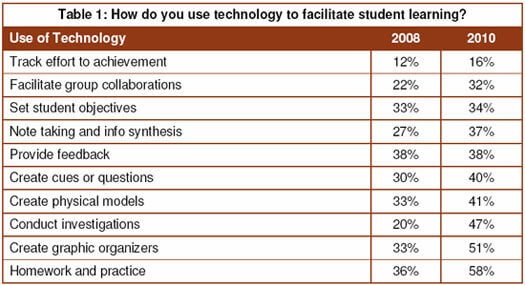Awkward Much? Why Missouri Lawmakers Can’t Stop Student-Teacher Friending on Facebook

Share
Over the past few months, government officials in Missouri have been bogged down in the social networking world as they sought to define how teachers and students are permitted to communicate electronically. Perhaps not surprising, the legislative battle has been a tumultuous and confusing one. The motive of lawmakers is to curtail any inappropriate communication between state employees and minors attending school and for good reason. The thought of a 40-year-old teacher casually chatting with a 12-year-old student late at night is unsettling, so naturally expectations fall upon the government to do something about it. But with all the other problems in the public educational system occurring throughout the country, why should anyone pay attention to this legislative drama? Because it reveals how policies aimed at controlling how people communicate in the Information Age seem doomed to a very short lifetime.
Sorry Missouri, but it's just too late to unplug everyone from the web.
The story begins with a piece of legislation called the Amy Hestir Student Protection Act, an education bill presented at the beginning of 2011 under the umbrella of protecting children from sexual offenders, and naturally, one of the main ways that minors interact with adults is in schools. Republican State Senator Jane Cunningham worked for five years on the legislation, likely compelled by her own experience of being sexually abused by a music teacher when she was 13, and finally got the backing of the Missouri State Teachers Association and other Missouri education groups. A number of its regulations dealt specifically with how school districts must handle the sexual misconduct of teachers or employees. But the legislation ultimately sought to define parameters about proper conduct of teachers with students, which required addressing communication via electronic media, and suddenly social networks, primarily Facebook, ended up in the crosshairs.
That's where the bill crossed the line by trying to roll the clock back 30 years.
The Act stated that by January, 2012, all school districts had to establish policies forbidding electronic communication between teachers and current or former students that takes place through sites or services that have "exclusive access," meaning anything not publicly accessible, including email, forums, IM, texting, or social networks. Not only would this bill prohibit teachers and students from communicating on Facebook, but it also jeopardized e-learning platforms, such as Moodle, depending on the interpretation of the bill's language. Now, Missouri has over 66,000 teachers and close to 900,000 students (according to Teacher Portal), so the policy directly impacts nearly 1 in every 6 Missourians, not to mention students' parents and the administrators that would need to enforce the policies.
Legislation aimed at protecting children often takes on a life of their own and can become beyond reproach lest a politician get painted as being an enabler of molesters, and so things went down as expected. In April, the state senate voted unanimously 34-0 to pass the bill, the house voted 154-0, and Governor Jay Nixon signed it into law in July to go into effect at the end of August. Senator Cunningham declared, "With the passage of my bill, our children will have solid protection from these predators. I am very glad the governor saw the importance of my legislation."
But teachers raised alarms as the ramifications of the bill's sweeping, vague language became more obvious, especially when it came to staples of online interactions, such as Facebook. The Internet chatter become particularly fond of a teacher who worried about whether she would get in trouble for friending her son who was a student because the law allowed no wiggle room. Social media tools have quickly become mainstays for teachers and students to communicate so their exclusion was like a modern-day hobbling.
With the school year approaching, panic set in. After complaints, the teachers association reversed their support and sued the state over the regulations about electronic communication. Two days before the law went into effect, a county circuit judge issued an injunction, citing the bill for its "chilling effect" on free speech. The Governor, in turn, called the General Assembly for a repeal to the provisions causing "substantial confusion and concern among teachers, students, and families" in a special session to be held less than two weeks later. At the session, State Senator Cunningham instead introduced a revised, Band-Aid version of the bill to address the initial concerns of the teacher's association that teachers were being unfairly targeted in the language and to expand it to include "employees and staff." In addition, Cunningham's revision axed the prohibitive provisions and left the terms for the appropriate use of electronic media up to individual school districts to define, though still requiring the enforcement of limitations on private communications and putting mechanisms into place to prevent improper communications. This revision was unanimously voted in by the senate, voted 139-2 in the house and has now been sent to Governor Nixon for his signature, which he would likely sign unless miffed about the revision being added when he only requested that the section be axed.
Be Part of the Future
Sign up to receive top stories about groundbreaking technologies and visionary thinkers from SingularityHub.


This story is far from over. The teacher's association refuses to drop its lawsuit stating that the revisions were made too quickly, more time was required to get input from its members about appropriate language and it's concern that some districts have very restrictive policies about social media, especially if they rely on draft policies proposed by the Missouri School Boards Association. Furthermore, individual school districts are allowed to define policies however they wish, so crazy rules are bound to emerge and stories of loopholes, injustices, and abuses will become media fodder.
But most importantly, this law is seeking to set guidelines for the behavior of about a million people in an effort to dissuade a very small percentage of state employees having the opportunity to violate their trusted relationships with students. School districts should definitely be responsible for setting the policies for appropriate use according to their own school's culture and pedagogy, but realistically, the more inclusive those policies are of social media, the better. Electronic communication may make it somewhat easier for predators to target and manipulate minors, but the technology itself isn't inherently immoral. Sexual abuse has gone on long before Facebook. It is naïve to expect school officials to regulate inappropriate communications in the virtual world when they haven't been able to stop it in the physical one.
In today's culture, this legislation comes across as fruitless sandbagging against the tide of technology in an effort to appear progressive about a decade too late. Furthermore, legislation that claims to protect the innocent from the corrupt with certainty can only be achieved through totalitarian means, regardless of what the politicians say otherwise.
The bill also fails to address the heart of the problem: everyone, even kindergarteners, needs to learn how to protect themselves in the digital era from predators. Instead, government officials should make it a priority to address the problem of awareness head-on and establish means to educate students, teachers and parents about how to be 21st century citizens. Or how about going a step further by embracing the entrepreneurial and innovative spirit of the next generation currently forced to slave through a 100-year-old educational model and instead challenge them to create the next Facebook that is specifically designed to address the privacy and security concerns of this bill?
Now that would be something to chat online about.
[Images: Missouri Senate Chamber, Project Tomorrow]
[Sources: MSTA, Patch, Social Media Law News, Teacher Portal, ZDNET]
David started writing for Singularity Hub in 2011 and served as editor-in-chief of the site from 2014 to 2017 and SU vice president of faculty, content, and curriculum from 2017 to 2019. His interests cover digital education, publishing, and media, but he'll always be a chemist at heart.
Related Articles

Scientists Send Secure Quantum Keys Over 62 Miles of Fiber—Without Trusted Devices

This Light-Powered AI Chip Is 100x Faster Than a Top Nvidia GPU

How Scientists Are Growing Computers From Human Brain Cells—and Why They Want to Keep Doing It
What we’re reading

